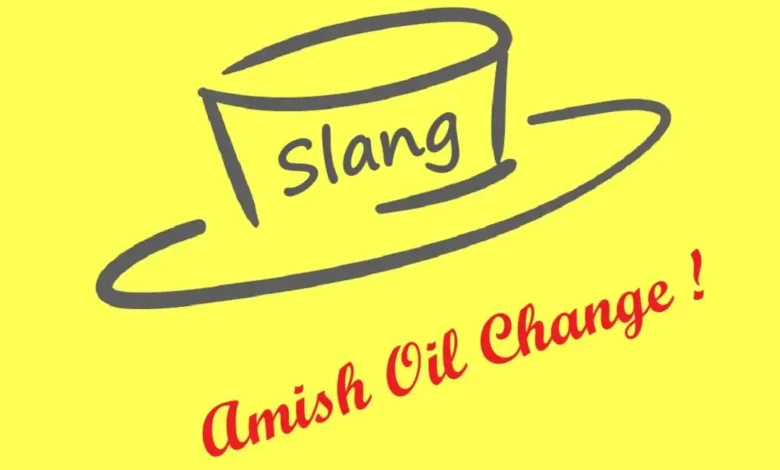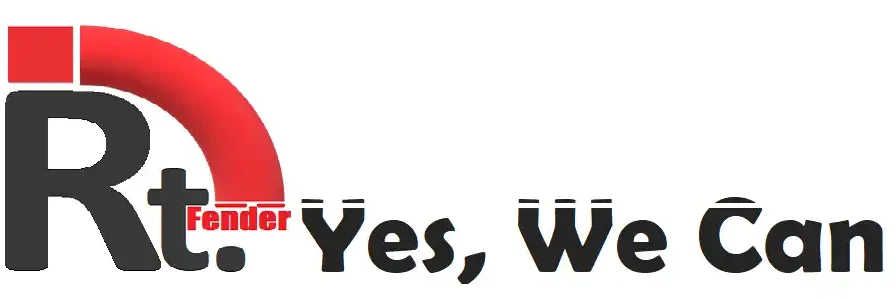
In the digital age, slang terms and trends spread rapidly across social media platforms, often leaving a lasting impression on popular culture. One such term that has recently gained attention on TikTok is the “Amish oil change.” This slang term, which originates from the darker corners of internet humor, carries a crude and offensive meaning that highlights the complex dynamics of modern language evolution. In this article, we will explore the origins, meanings, and cultural implications of the term “Amish oil change,” while also examining how such terms reflect broader societal trends and the power of social media in shaping contemporary vernacular.
- Origins and Meaning
- Cultural Implications
- The Role of Internet Culture
- Attention and Virality
- Boundaries of Humor
- The Amish Community: Misrepresentation and Stereotyping
- The Power of Social Media
- The Evolution of Language in the Digital Age
- Ethical Considerations and Social Responsibility
- Amish Oil Change Slang
Origins and Meaning
The term “Amish oil change” is a slang expression that has surfaced primarily on TikTok with two different, inappropriate definitions. The first involves a procedure to ensure a horse has regular bowel movements. The second involves a sexual act performed on the animal.
According to Urban Dictionary, an “Amish oil change” refers to a disturbing and offensive act in which a woman performs fellatio on a horse and then spits out the semen. This explicit and inappropriate definition reveals much about the nature of certain internet humor, which often thrives on shock value and boundary-pushing content.
The phrase itself is a juxtaposition of seemingly unrelated elements: the Amish community, known for their simple, technology-free lifestyle, and the act of performing an “oil change,” a routine maintenance task for vehicles. By combining these elements, the term creates a jarring and grotesque image that underscores its intended shock value.
Cultural Implications
Slang terms like “Amish oil change” are not just linguistic curiosities; they are reflective of deeper cultural and social dynamics. The rise of such terms can be attributed to several factors, including the influence of internet culture, the desire for attention and virality, and the boundaries of acceptable humor.
The Role of Internet Culture
Internet culture plays a significant role in the creation and dissemination of slang. Platforms like TikTok, Twitter, and Reddit serve as breeding grounds for new expressions, often with little regard for conventional social norms. The anonymity and vast reach of these platforms allow users to share content that might be considered inappropriate or taboo in other contexts. As a result, terms like “Amish oil change” can gain traction quickly, spreading through likes, shares, and comments.
These platforms create an environment where the shock value of certain terms can thrive. The competitive nature of social media, where users are constantly vying for attention, encourages the creation and use of slang that stands out. This drive for virality can lead to the normalization of language that pushes the boundaries of what is socially acceptable.
Attention and Virality
In the quest for attention and virality, content creators often push the limits of taste and decency. Shock value becomes a tool for standing out in a crowded digital landscape, where millions of posts compete for viewers’ attention. The explicit nature of the “Amish oil change” term is designed to provoke strong reactions, whether they be laughter, disgust, or outrage. This reaction, in turn, fuels its spread as more users engage with the content and contribute to its visibility.
Virality on platforms like TikTok is often driven by algorithms that prioritize content generating significant engagement. Controversial terms that elicit strong reactions are more likely to be promoted, leading to a cycle where offensive language can become widespread quickly. This highlights a key aspect of digital culture: the power of algorithms in shaping what becomes popular and how cultural norms evolve online.
Boundaries of Humor
The boundaries of humor are constantly evolving, influenced by cultural shifts and changing social attitudes. What might have been considered unacceptable in the past can become normalized through repeated exposure and shifting norms. However, the rise of offensive slang terms also raises important questions about the impact of such language on society. While some may view these terms as harmless jokes, others see them as perpetuating harmful stereotypes and contributing to a culture of insensitivity.
Humor has always been a reflection of societal values and tensions. In the digital age, humor often thrives on pushing boundaries and challenging taboos. Slang terms that rely on shock value exploit these boundaries, creating humor through discomfort or outrage. This can desensitize audiences to offensive language and normalize harmful attitudes, especially when such terms become widespread through social media.
The Amish Community: Misrepresentation and Stereotyping
The use of the term “Amish oil change” also brings to light issues of misrepresentation and stereotyping. The Amish community, known for their distinct way of life that eschews modern technology, is often romanticized or caricatured in popular culture. By associating the Amish with such a vulgar act, the term perpetuates negative stereotypes and disrespects a group that values privacy and simplicity.
The Amish are often portrayed in media through a lens of quaintness or backwardness, failing to recognize the depth and complexity of their culture. This misrepresentation can lead to harmful stereotypes that paint the Amish as naive or out of touch. The use of their name in such a crude context only serves to reinforce these misconceptions and can contribute to a broader cultural insensitivity.
The Power of Social Media
Social media’s role in popularizing slang cannot be overstated. Platforms like TikTok have algorithms designed to surface content that generates high engagement, whether positive or negative. As a result, controversial terms and trends can quickly become widespread, reaching audiences far beyond their initial creators. This viral nature of social media content means that slang terms can have a significant cultural impact, shaping language and social norms in ways that are both profound and unpredictable.
Algorithms and Virality
The algorithms behind social media platforms like TikTok are designed to prioritize content that engages users, often through likes, shares, and comments. Controversial or shocking content, such as slang terms with offensive meanings, can generate significant engagement due to the strong reactions they provoke. This engagement creates a feedback loop where the algorithm continues to promote such content, further amplifying its reach and impact.
Memes and Cultural Transmission
Slang terms are often spread through memes, which are a cornerstone of internet culture. Memes provide a visual and often humorous way to convey complex ideas quickly, making them ideal for the fast-paced environment of social media. The “Amish oil change” term, like many others, can be embedded in memes that further enhance its virality. These memes can cross cultural and linguistic boundaries, spreading the term to a global audience and embedding it in the collective digital consciousness.
The Evolution of Language in the Digital Age
The rapid spread and adoption of slang terms like “Amish oil change” illustrate the dynamic nature of language in the digital age. Language is constantly evolving, and the internet accelerates this process by providing a platform for the rapid dissemination of new terms and phrases. However, this evolution also raises questions about the impact of such language on communication and social norms.
The Role of Context
Context is crucial in understanding and interpreting slang. The meaning and reception of a term can vary widely depending on the context in which it is used. On platforms like TikTok, where brevity and immediacy are key, the context is often limited to a short video or a brief caption. This can lead to misunderstandings or misinterpretations, especially with terms that have offensive or controversial meanings.
Ethical Considerations and Social Responsibility
As we navigate the complexities of modern slang, it is essential to consider the ethical implications and our social responsibility as communicators. The use of offensive or harmful language can have real-world consequences, contributing to a culture of insensitivity and disrespect. By being mindful of the impact of our words, we can foster a more inclusive and respectful online environment.
The Importance of Awareness
Awareness is the first step in addressing the ethical considerations of slang. Understanding the origins and meanings of terms, as well as their potential impact, allows us to make informed choices about the language we use. This awareness can help prevent the spread of harmful or offensive terms and promote a more respectful discourse.
Promoting Positive Language
Promoting positive and inclusive language is a crucial aspect of social responsibility. While humor and creativity are important elements of communication, they should not come at the expense of respect and sensitivity. By encouraging the use of language that uplifts and includes, we can contribute to a healthier and more positive digital culture.
Amish Oil Change Slang
The term “Amish oil change” serves as a stark example of how modern slang can reflect the complexities and contradictions of contemporary culture. Its crude and offensive nature highlights the darker side of internet humor, where shock value often takes precedence over respect and sensitivity. At the same time, the rapid spread of such terms underscores the power of social media in shaping our language and cultural landscape.
As we navigate the evolving world of digital communication, it is essential to remain mindful of the impact of our words and the ways in which they can influence perceptions and attitudes. By understanding the origins and implications of slang terms like “Amish oil change,” we can better appreciate the broader cultural dynamics at play and strive to create a more respectful and inclusive online environment.
The evolution of language is a reflection of the times we live in, and as digital citizens, we have the power to shape that evolution in meaningful ways. By promoting awareness, fostering positive language, and engaging in respectful communication, we can contribute to a digital culture that values creativity without sacrificing respect and dignity.
We hope you found this article helpful. If you did, be sure to check out our blog for more great content like this.





